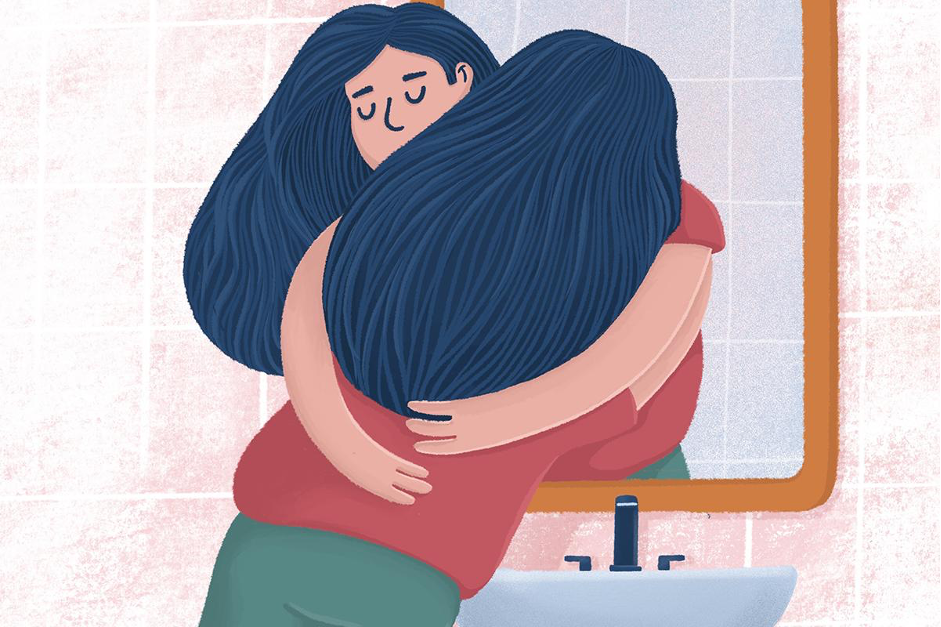In the whirlwind of veterinary medicine, where our days are consumed with the wellbeing of our patients and the satisfaction of our clients, it’s easy to lose sight of our own needs. We talk about the importance of self-care, but there’s an unsung hero on this wellness journey – self-compassion. As an emergency and critical care specialist and wellbeing advocate, I’ve come to realize that, beyond the routine practices of self-care, the true game-changer lies in embracing self-compassion.

Understanding Self-Compassion
Dr. Kristin Neff, Co-Founder of the Center for Mindful Self-Compassion, defines self-compassion as “healthy ways of relating to oneself in times of suffering, whether suffering is caused by failure, perceived inadequacy, or general life difficulties.” It’s about accepting our humanity, complete with its quirks and imperfections.
I’ve found that self-compassion becomes especially crucial when faced with the dilemma of taking a day off for personal wellbeing. There’s a common anxiety among veterinary team members – a fear that clients will be left in the lurch, or a lingering belief that stepping away makes us a “bad person.” These emotions, if left unchecked, can lead to a cascade of self-criticism.
The Three Components of Self-Compassion
Dr. Neff outlines three key components of self-compassion:
- Self-Kindness vs. Self-Judgment: Instead of harsh self-criticism, I’ve learned to embrace warmth and understanding during challenging times. It’s about treating myself as I would a close friend.
- Common Humanity vs. Isolation: Recognizing that the struggles I face are part of the shared human experience has been liberating. It fosters connection, dispelling the isolating notion that I’m alone in my challenges.
- Mindfulness vs. Over-Identification: Striking a balance with my negative emotions, neither repressing nor magnifying them, has allowed me to approach difficulties with a clear and composed mind.
The Practice of Self-Compassion
Beyond the theoretical, Dr. Neff offers practical exercises and activities to enhance self-compassion, including journaling, creating mantras, and adopting positive self-talk. Engaging in these practices has proven transformative, offering individuals a robust response to challenging situations and reducing stress during the toughest times.
When I am feeling especially challenged in my work or personal life, I have the option of listening to self-compassion meditations, journaling about my most shameful moments as a veterinarian, or crafting a self-compassion mantra (usually related to parenting!). I can say wholeheartedly that the transformation has been palpable, bringing about an improved ability to rebound from setbacks.
Self-Compassion in Veterinary Medicine
Research among veterinary students aligns with my own experience. A study in the Journal of Veterinary Medical Education discovered that students with higher self-compassion scores demonstrated increased resilience. It’s a testament to the positive impact of self-compassion in navigating the challenges of veterinary school.
The Link Between Self-Compassion and Self-Care
And while specific research on self-compassion among veterinarians is still emerging, a study among palliative care nurses and doctors in Australia hints at a positive correlation between self-compassion and self-care. It suggests that cultivating self-compassion could be the key to unlocking a more profound engagement with meaningful self-care practices.
The Transformative Power of Self-Compassion in Practice
In my personal and professional life, self-compassion has become the throughline that allows me to show up as the best version of myself. Whether it’s easing the distress after a mistake or granting permission for a break during overwhelming times, I’m convinced that self-compassion is the salve for the soul in the demanding field of veterinary medicine.
As the veterinary community continues its pursuit of wellbeing, let’s not forget to infuse a healthy dose of self-compassion into our daily routines. It’s the secret ingredient that turns routine self-care practices into a transformative journey of understanding, resilience, and genuine care – for our patients, our clients, and most importantly, for ourselves.
